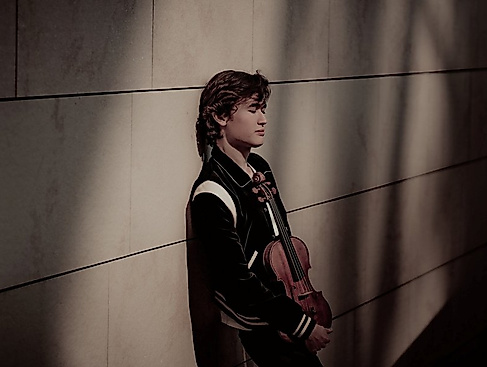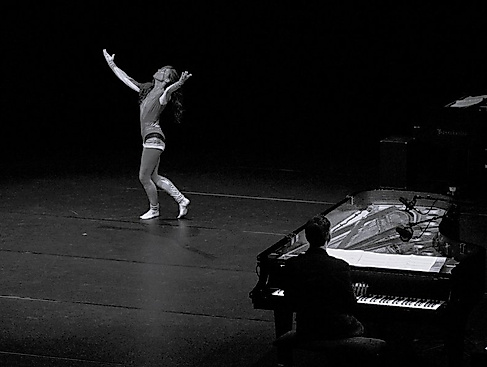
Ensemble Resonanz / Tabea Zimmermann
- Classical Music
Tabea Zimmermann and the Ensemble Resonanz explore the music of the first half of the 20th century – a time of change, full of ruptures, contrasts and new possibilities. Three works by George Enescu, Lili Boulanger and Béla Bartók reflect the diversity and richness of this era: between impressionism and folkloristic inspiration, between dazzling beauty and impending doom.
Enescu’s monumental string octet, here in an orchestral version conducted by Tabea Zimmermann on the viola, is a work that marks the dawn of a new century, urgent, exuberant and full of energy. Powerful and complex in sound, it unfolds a polyphonic fabric that oscillates between folkloristic echoes, late-romantic ecstasy and modernity.
The French composer Lili Boulanger, who was the first woman to be honoured with the Prix de Rome for composition, left behind a small but significant oeuvre despite her tragically short life. Her late work »D’un soir triste«, in a new arrangement for viola and strings by Johannes Schöllhorn, is a floating elegy – filled with melancholy and foreboding, a last glimpse of a fading world.
Bartók’s Divertimento for string orchestra, on the other hand, dances on the edge of the abyss: a seemingly carefree lightness behind which a deeper restlessness bubbles – the premonition of a world on the eve of war. Bartok himself wrote: »I feel like a musician from an old world who has been invited as a guest by his patron. I am writing a work that may seem cheerful, but how can one still feel lightness at all in these times?«
PERFORMERS
Ensemble Resonanz chamber orchestra
Tabea Zimmermann viola and director
PROGRAM
George Enescu
Oktett für Streicher C-Dur op. 7 (Fassung für Streichorchester)
Lili Boulanger
D’un soir triste
Béla Bartók
Divertimento for String Orchestra, Sz 113
No liability is assumed for the correctness of the data.









